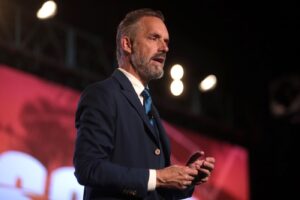When the history of our time is written, 2020 will be known as the year of the COVID-19 pandemic. With the way this year has started, it’s conceivable that 2021 will be known as the year of the cancel culture epidemic.
The cancel culture epidemic is no mere “distraction.” It goes to the very heart of who we are as a nation, where we have come from as a civilization, and what we wish to become as a society. We face a choice. Do we wish to preserve our history, with all its attendant problems and embarrassments? Or will we make ourselves vulnerable to the even greater risks that come with cutting ourselves off from our history?
The Judeo-Christian tradition offers us a time-tested way of negotiating this choice. This week, billions Christians and millions of Jews across the world are observing the holidays of Easter and Passover. These festivals commemorate two of the most glorious events in our peoples’ histories: the redemption of the Jewish people from their slavery in Egypt, and the resurrection of Christ following his crucifixion. One might think that in celebrating these holidays we would exult in our salvific triumphs and make no mention of anything that could detract from our religious revelry. Strangely enough, however, we do just the opposite.
Jews begin the Passover Seder by declaring that “in the beginning, our ancestors were idolaters.” Christians, when recounting the story of Jesus’ death and eventual resurrection, tell the story of how St. Peter denied Christ three times following the Last Supper—a story so scandalous, in its presentation of the man who would later go on to found the Christian Church as originally having been a denier of Christ, that one would think the early Church fathers would have edited this story out of the New Testament. More shockingly, they not only chose to leave it in Scripture but to repeat it. It appears not just once but in all four of the canonical Gospels. Similarly, the Talmud states that it is not out of a mere whim that Jews begin the Seder by recounting their shameful past—it is a core component of the Seder itself, which, the Talmud declares, must include a mention of the Jewish people’s embarrassing past. Christianity and Judaism have survived, and now thrive, not because they have erased the problematic aspects of their past, but by openly acknowledging them—by building them into their rituals and incorporating them into the very fabric of their faith.
Start your day with Public Discourse
Sign up and get our daily essays sent straight to your inbox.Christianity and Judaism have survived, and now thrive, not because they have erased the problematic aspects of their past, but by openly acknowledging them—by building them into their rituals and incorporating them into the very fabric of their faith.
The less than honorable aspects of our history and cultural heritage can be painful to confess to, but it is the key to our survival as a civilization. It is easier to paper over, censor, and suppress the aspects of our art and literature that we’re not proud of. But censorship and blanket suppression are the tools of totalitarian societies. Open dialogue, reasoned debate, and civil discourse are the methods that free societies use to confront challenges. If we believe that Western Civilization is worth saving—if we believe that the meeting of Athens and Jerusalem and the synthesis of classical Greece and Rome with the ethical monotheism of Judaism and Christianity have contributed something of incalculable value to the world—then we must preserve our history, with all of its shameful and painful elements. Easter and Passover can guide us in how we may do so without sacrificing our civilizational self-esteem.
Friedrich Nietzsche believed that in the age of “the death of God” we could now create our own values and cast away our histories. Jung, more astutely, believed that the wish to do away with our history was not only delusional but dangerous. Human beings, said Carl Jung, are not creatures who are “able to be born every day and to live without history.” We are like trees with many roots—if you cut off the roots, what shall happen to the tree? Not for nothing, then, did Jung speak of cutting ourselves off from our past as the “mutilation of the human being.” As Jung wrote,
We think we are able to be born every day and to live without history, but that’s a disease, that’s absolutely abnormal, because man is not born every day, he’s once born in a specific historical setting with specific historical qualities, and therefore he’s only complete when he has a relation to these things. [It can’t be as if] he’s born without eyes and ears, when you are growing up with no connection to the past—from the standpoint of natural science, you need no connection to the past, but that is a mutilation of the human being.
In 2021, we will have to decide if we wish to become like trees without roots. And we will have to decide whether to continue traveling along the long and hard—but ultimately prosperous—path of liberal democracy, or whether we prefer the short and easy—but ultimately disastrous—road to totalitarianism. If we choose to view these questions as mere “distractions,” I fear greatly for the kind of society—and the kinds of people—that we are on the road to becoming.













